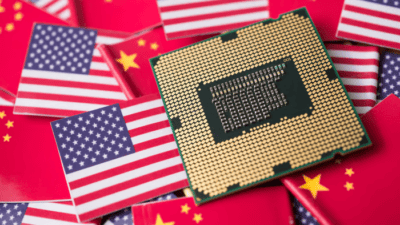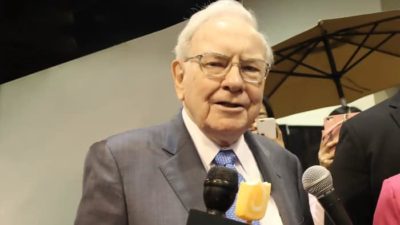This article was originally published on Fool.com. All figures quoted in US dollars unless otherwise stated.
It's arguably the world's most recognizable chain of restaurants, with over 39,000 locations found in more than 100 countries. Its golden arches remind consumers they can enjoy a familiar, comforting meal almost anytime and anywhere they want.
The chain in question is, of course, McDonald's (NYSE: MCD). It's evolved over the years, but its appeal -- and success -- has effectively leveraged the idea of sameness. That is to say, customers like the fact that eating at a McDonald's is at least a partial nod to the past; the value isn't too shabby, either. This foundation is a big reason investors can look forward to more growth from the restaurant chain in the future.
Still, there's one development that would-be shareholders would be wise to put on their radar.
Plenty of growth
Not every business idea McDonald's comes up with is a winner. For example, the live-action Hamburglar meant to modernize the hamburger-stealing cartoon character and introduced in 2015 ended up being more creepy than cool. And, although the company would probably like to, let's not forget McDonald's once dabbled in pizza (back in the late 1980s).
By and large, though, the restaurant chain boasts more hits than misses, especially when it needs them the most. One only has to look four months back to find an example of the chain's frequent strokes of brilliance.
While life in parts of the country is somewhat getting back to (the new) normal, as of early September, the fallout from the COVID-19 pandemic was still in full swing. Debates over the risk of restarting school were heated, while restaurants and retailers were still very restricted as to what they could and couldn't do. Millions were still unemployed all over the world, and discretionary spending was crimped ... even if just for logistical reasons. The fast-food giant's second-quarter numbers proved it. Sales for the three-month stretch ending in June were down 29% year over year. Income fell 67%. Simply put, the company needed help.
Travis Scott came to the rescue.
You may not know who the relatively new musician and entertainer is, but younger fans of pop and rap music do. His star power was enlisted to help McDonald's sell a $6 meal combo in September. The promotion was so successful that the company struggled to fully meet demand. McDonald's eventually reported that September's sales marked the best single month in almost a decade.
One good month or one savvy promotion doesn't inherently make a company a winner. The fact that McDonald's was able to act as well as it did when it did is a microcosm of its entire operation, though. Not every idea is a winner, but the ones that are end up being very big deals.
This reality is evident in the numbers. Earnings aren't growing in a perfectly straight line, but they are growing pretty consistently, and are expected to keep growing from here.

Data source: Thomson Reuters. Chart by author. Revenue and operating cash flow figures are in millions of dollars.
As for revenue, yes, it's been shrinking, but that's by design. The organization has been paring back its ownership of restaurants by selling them to franchisees. As of September, 36,438 of the world's 39,096 locations (6.8%) were franchise properties, up from 29,851 of the 36,405 McDonald's locales (18%) five years ago. The move ultimately means lower sales but potentially more profits since franchisees' fees and royalties are higher-margin revenue. This transition is largely complete now, translating into sales and earnings growth going forward.
Just keep tabs on franchisees' frustration levels
That said, the company's strategic shift away from restaurant ownership and toward a more profitable franchising focus has coincided with what some would characterize as an increasingly unfair burden on local operators.
Franchising is usually a symbiotic relationship within the fast-food industry. A well-known outfit like McDonald's or rivals such as Wendy's or Subway bring brand recognition and national advertising to the table, while localized businesspeople offer labor and remote management. These entrepreneurs also supply franchisors with recurring royalty revenue.
Being a McDonald's franchisee is neither cheap nor easy, though. Not every operator wants to serve every menu item the corporation pushes its restaurants to offer. Ever-increasing promotional costs and required remodels have also become more and more common, as have frustrations regarding rent payments; the parent company owns its restaurant real estate and then leases it to franchisees at rates based on that store's sales. And, despite coronavirus-related headwinds, early this month the parent unveiled new, additional franchise fees to be imposed beginning in 2021 at the same time as some operator subsidies were altogether canceled.
In response to new fees announced this month, some franchisees are rethinking their willingness to continue offering value-oriented parts of their menu. Others are mulling increased prices for Happy Meals, while still others are reportedly considering slightly higher prices across the entire menu.
And rather than cooling off over time, this infighting still appears to be ramping up.
Bottom line for McDonald's
It's not a fatal flaw, and certainly not one that could prove immediately disastrous. Even on its worst days, McDonald's is a more reliable cash collection mechanism than many other fast-food chains. As was already noted, it's the most recognizable name in the business for a reason. It's also been a great investment for the same reason.
Nevertheless, the tensions between the parent company and franchisees not only seem to never end but may even be worsening. This sort of adversarial dynamic poses the risk of pushing franchisees out of the McDonald's network while preventing other prospective franchisees from ever teaming up with the company.
It's still not a reason to avoid the stock, though ... at least not yet.
This article was originally published on Fool.com. All figures quoted in US dollars unless otherwise stated.








